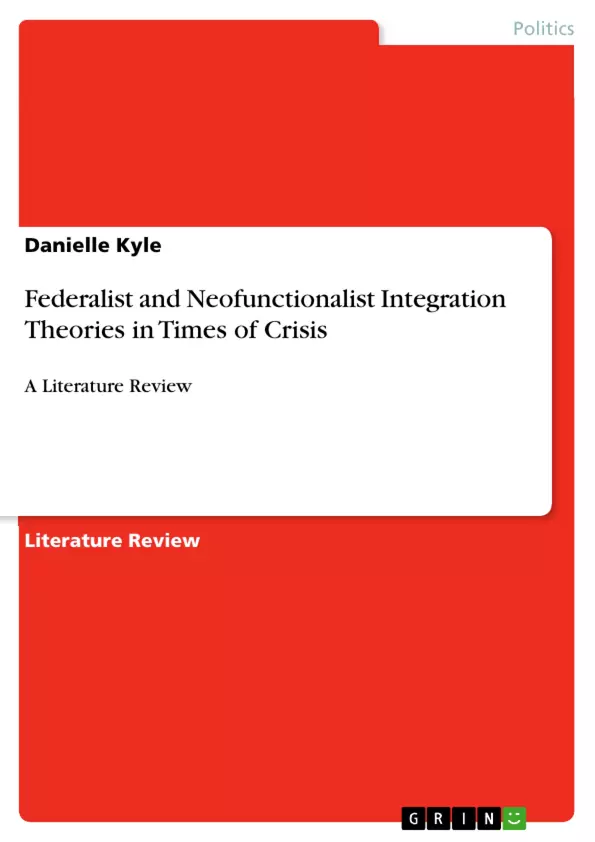In this review, I compare federalist and neo-functionalist literature on crisis outcomes in the EU. I seek to answer the posed questions and see which argument upholds best against Brexit, a crisis which is not yet in the post-crisis phase.
In the past few years, the European Union has seen three major crises; the Schengen crisis, the euro crisis and Brexit. Though all of these events are individual and unique unto themselves, what similarities do they have? What can European integration theories do in order to help us understand their similarities and differences?
This review aims to compare the strength of argument posed by two pieces of literature, each in favor of a different integration theory. The literature should be able to provide clarity to how these crises came about, as well as plausible explanations for their aftermath. While there will be some discussion of the euro crisis and the Schengen crisis, this review will focus on the most recent EU crisis: Brexit. All of the texts are very recent in order to account for the modern context necessary to understand these events. If the literature of one integration theory literature is better at describing and accounting for the variation in crises, then it should be applicable to literature that does not favor one integration theory over others.
Table of Contents
- Introduction
- Background
- Key Concepts
- Literature Review
- Conclusions
- Bibliography
- Abstract
Objectives and Key Themes
This literature review aims to compare federalist and neo-functionalist integration theories in the context of European Union crises, specifically focusing on the Brexit crisis. It explores how these theories can explain the causes and aftermath of such crises, analyzing the strengths and weaknesses of each perspective.
- Comparing federalist and neofunctionalist perspectives on EU crises
- Analyzing the applicability of these theories to the Brexit crisis
- Exploring the strengths and weaknesses of each integration theory
- Understanding the historical background of European integration
- Evaluating the potential implications of these theories for the future of the EU
Chapter Summaries
- Introduction: This section introduces the topic of European integration theories and their relevance in understanding EU crises, particularly Brexit. It also outlines the purpose and structure of the review.
- Background: This section provides historical context by discussing the early views on federalism by Altiero Spinelli and Friedrich Hayek, outlining their contributions to the development of European integration.
Keywords
This literature review focuses on federalist and neofunctionalist integration theories, the European Union, EU crises, Brexit, historical background, and the potential implications of these theories for the future of the EU.
Frequently Asked Questions
What is the difference between federalist and neofunctionalist integration theories?
The review compares these two perspectives to see how they explain EU crises, focusing on their different views on sovereignity and institutional evolution.
How does the review analyze the Brexit crisis?
It uses Brexit as a case study to test which integration theory provides better clarity on how the crisis arose and its plausible aftermath.
Which other EU crises are mentioned?
Besides Brexit, the review briefly discusses the Schengen crisis and the Euro crisis.
Who are the historical figures mentioned in the background section?
The section discusses early views on federalism by Altiero Spinelli and Friedrich Hayek.
What is the goal of comparing these theories?
To evaluate which literature accounts best for the variation in modern EU crises and to understand their similarities and differences.
- Citar trabajo
- Danielle Kyle (Autor), 2017, Federalist and Neofunctionalist Integration Theories in Times of Crisis, Múnich, GRIN Verlag, https://www.grin.com/document/489358



